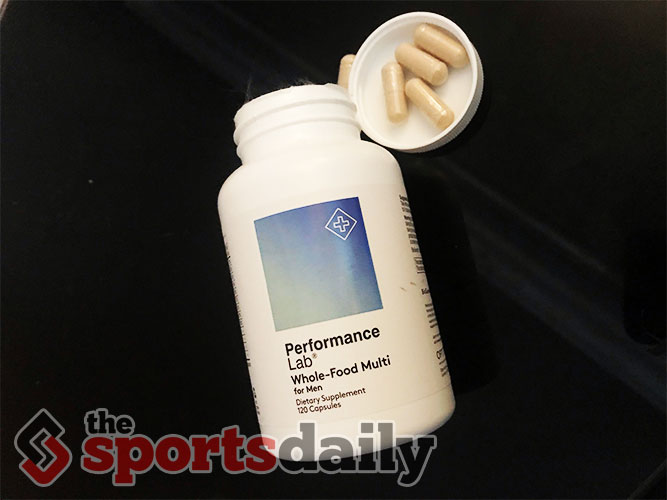Rugby players are complete athletes. To go 80 minutes with the best, you have to be powerful, incredibly strong and physical, quick, smart, skillful, and fit enough to last the whole match. You wouldn’t just expect all of that to appear magically without hours of training and preparation. So how could you ask any differently of your nutrition?
Whole, nutrient-dense foods should be the bread and butter of your diet, much like your weekly trainings. But supplements are the extra 30 minutes afterwards when the lights have gone off, everyone has gone home, and you’re left getting that much better.
The best supplements for rugby tackle three main areas:
- Every Day Supplements for maximizing general macro/micro nutrient content
- Peri-workout (pre and post) to stay hydrated and fueled for training
- Improving recovery and sleep
Every Day Supplements
Look for supplements that offer similar synergistic effects to food. We don’t eat single nutrients on their own during meals for a reason. Proteins, carbs, fats, and certain chemical compounds interact with each other to enhance or minimize their impact on the body.
Fish oil
Omega-3 fats have been shown to mitigate the consequences of exercise-induced inflammation. Simply playing rugby causes acute inflammation from collisions (think postgame bruises) and from the stress of exercise. This, in the short term, is a good thing. You can only get better by pushing past your limits and then recovering to grow stronger.
Acute inflammatory responses usually subside in a few days, yet most athletes need to hit the gym more than twice a week. Therefore, every time you’re back at training, another acute response spikes, and you’re at risk for chronic inflammation.
In order to recovery faster, fish oils are a great daily supplement to keep you at your fighting best. Shoot for 2-3 grams of fish oils per day, possibly more during injury recovery or intense training blocks.
Multivitamin
As mentioned above, training for rugby causes oxidative stress, which yields acidic byproducts that can be detrimental if not cleared. Diets high in antioxidants, vitamins, and minerals help maintain alkalinity to balance your intracellular pH. While the best option is to pack your plate with vegetables, sometimes that’s not enough. Maybe you just don’t feel like broccoli that day, or maybe you can’t afford constant organic produce.
Multivitamins are a great catch-all to get the benefits from nutrients in fruits and vegetables. Pop a multivitamin in the morning (and keep eating your greens) to fill the gaps if you’re struggling to get enough. A common concern with supplements, however, is that they’re synthetic version of these vitamins, and the body might spot a fake. Performance Lab Whole Foods Multi takes this into consideration and offers the same bioavailable vitamins that come from fruits and vegetables to ensure you’re getting the best bang for your buck.
Vitamin A, B Vitamins, Vitamin D, Magnesium, Calcium, Vitamin C, and more are critical to counteract a lack of energy, low immune function, or muscular fatigue. Don’t be sidelined because your diet is lacking.
Peri-workout Nutrition
What you eat around your workout will make or break your success. Protein, carbs, salts, and creatine lay the groundwork for elite performance.
Protein and carbs
Rugby athletes need more protein than most. Rather than eat 30 chicken breasts per day (which, by the way, you can’t even metabolize), add whey protein before/after your workouts. Vegetarians and vegans – don’t worry – rice and soy protein work too. After high-intensity sessions, whether it’s a lift that floored you or an hour of Malcolms, you need carbs to refill those glycogen stores. Remember, recovery is when you build. A 3:1 carb-to-protein ratio works best.
Pre-workout
Do you want to drag yourself in to your workout lethargic, passive, and looking for the door? No. You want to show up, ready to throw weights around, excited to build for the upcoming season. Prepare your body and mind with a great pre-workout supplement. Here’s your checklist for what a good pre-workout should offer:
- Creatine
- Buffer pH
- Stimulate Energy
- Increase blood flow
- Facilitate muscle growth and recovery
Creatine helps regenerate ATP during short, explosive movements such as a scrum, a dive to the try line, or a heavy hang clean. Research has correlated creatine supplementation with increased work production, both over time and one-rep max. Think of the creatine phosphate cycle like the newest technology with the worst battery. It’s way more productive than some old versions, but it needs to be plugged back in after a few seconds. Creatine supplementation acts like having a charger around for your entire workout, so you can use that high-powered technology effectively.
Intracellular hydrogen ions collect as byproducts of carbohydrate metabolism, the preferred source of energy for playing rugby. You’ve probably heard that lactic acid forms within muscle during hard workouts and leads to fatigue. pH buffers connect with those stray hydrogen ions before they become lactic acid that slows you down. Basically, they sweep away the negative effects of intense exercise so you can keep going.
In the short-term, L-Glutamine, L-Carnosine, and L-Citrulline, natural amino acids, can clear ammonia build-up, support greater muscle power output, and increase blood levels of bicarbonate. Sure, you could take all of these individually. But Performance Lab Pre-Workout offers these three amino acids, creatine, and cordyceps – a natural fungus that boosts energy and resists fatigue.
These pre-workout elements can be game-changers for rugby players. Glutamine in particular accelerates the clearing of lactic, potentially extending time until failure. Carnosine levels are higher in anaerobic athletes, like lightning-quick wingers or dominant props with more concentrated fast-twitch muscle fibers. That makes sense, as it neutralizes the damaging effects of anaerobic metabolism. Citrulline increases blood flow and maximal oxygen consumption to raise anaerobic threshold. Finally, all of these nutrients can reduce soreness after exercise, helping you get ahead of your recovery before it even starts.
Intra-workout
Obviously you’re not going to step off the field to chug a drink during the first half, but half-time is a great opportunity to refuel. Plus, you can always use time during training to maximize your nutrition and get some BCAAs in.
BCAA’s can be used to replenish energy, restore glucose levels, and help you recover quicker from the intensity of playing. The three BCAAs, or branched-chain amino acids, are leucine, isoleucine, and valine. Making up 40% of your amino acid requirement, they work together to enhance strength and endurance during exercise as well as fueling muscle recovery.
In addition to their primary role in muscle synthesis, leucine in particular indirectly stimulates blood glucose production via gluconeogenesis. For rugby players, this means when you’re low on carbs halfway through a game or workout, BCAAs can make a huge difference.
For best results, choose a BCAA supplement with a high leucine ratio, and combine them with quick-digesting carbs to maximize energy. Not only will you train harder, but you’ll recover faster afterwards.
Post-workout
That brings us to post-workout supplementation. Intense training leads to intense fluid loss. Athletes are especially susceptible to dehydration. training to get in shape for rugby isn’t for the weak, it’s not uncommon for rugby players to lose up to five pounds of water weight after conditioning.
Sports scientists and doctors typically recommend sports drinks for sessions over 90 minutes, in hot conditions, or ones that really beat you down. Sodium, magnesium, calcium, and potassium combine to rehydrate the body to keep everything running smoothly. If you’re in the depths of pre-season, just finished a championship match, or are preparing for sevens, hydration is the most important factor to your performance.
In addition to salts, simple sugars and proteins replace much-needed glycogen stores after hard session. As carbohydrates are drawn from stored reserves in muscle tissue, replacing these keeps you from feeling overly fatigued and able to compete again another day. Find a post-workout supplement that provides both, in addition to augmenting protein synthesis. Extra points if your supplement contains antioxidant properties like Post-Workout Sport from Performance Lab.
Improving Recovery and Sleep
Two of the most underrated contributors to elite rugby are high quality sleep and mental function. It’s no secret that rugby is a game of collision. Despite World Rugby’s law changes to keep players safe, it’s still possible that you’ll take a hit to the head.
Keeping your mind in top shape not only sharpens your decision-making on the field, but it maintains health off the field. And sleep? Well, sleep is magical and heals almost everything – from bruises and soreness to illness and stress.
Being a rugby player is more than what happens on the field. Take care of yourself as a person first, then a rugby player second. By building a balanced life, you’ll bring vigor to the battlefield and strengthen your general well-being. Supplementing with good fats and phospholipids strengthens the lipid bilayers that surround your brain cells. For general recovery from the day and better sleep, Tart Cherry juice is the #1 answer.
Tart cherries are a natural source of melatonin, a natural compound that signals sleepiness in the brain, usually around your circadian rhythm. Stress, late training sessions, or blue light from technology can mess up your circadian rhythm. Rather than taking plain melatonin, tart cherry juice adds antioxidants that combat inflammation as well. While non-athletes may be fine with a simpler method, rugby players will gain much more from a combination.
Take care of your body, mind, and stress levels as a rugby player. You’re getting beat up on the field and in the weight room, but real growth only comes through recovery. Give yourself the best chance for success by prioritizing daily nutrition, fuel around your workout, recovery and mental health.
Add The Sports Daily to your Google News Feed!










